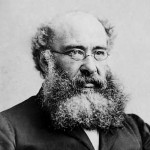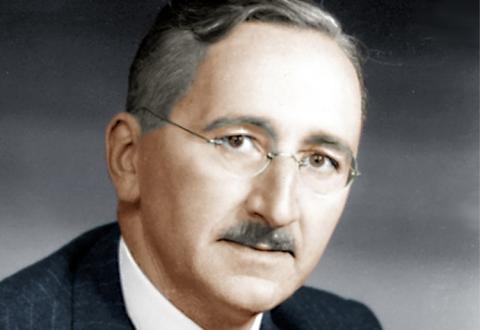|
The English were proud of their nation's commercial successes but also worried that they lived in a plutocracy —a country where wealth and power rule— because of those successes. The ambivalence of this attitude is captured in Trollope's novels, which highlight the culture's propensity to both worship and abuse the various forms of wealth that emerged as England's economic dominance shifted from land and production to banking and sales, while also highlighting all the good things that money enables people to do and acquire. According to Friedrich Hayek, if only governmental restrictions were abolished, the free market would offer the ideal number (and diversity!) of financial products. Competition in the "fiat money sector" would result in currencies that were incomparably better than those produced by the government, just as competition in other industries leads to low pricing and high-quality products. Here, Roger Kimball presents his own contentious viewpoints on the matter. |
 Lessons From Anthony Trollope and Friedrich Hayek on Money
Lessons From Anthony Trollope and Friedrich Hayek on Money
by Roger Kimball
When it comes to money, most politicians are curiously divided in their minds.
On the one hand, they aren’t averse to spending gobs and gobs of it—millions, billions, and trillions.
Just think of the obscene $1.7 trillion spending bill that’s just about to come down on your children, their children, yea, even unto the seventh son.
People used to say that Republicans were the party of fiscal restraint. But, how many just voted for this orgy of fiscal incontinence, larded as it was with “earmarks,” a euphemism for pork.
There’s always more, our masters seem to think, where the last batch of fantasy money came from.
It’s the spigot theory of economics: Just turn the handle of government authority and presto! The tax receipts, the fees, the garnishments, and the sundry redistributed adjustments flow in like rainwater after a storm.
Although it’s a bipartisan sport—Mitch McConnell and Joe Biden recently played a match in Kentucky—the Democrats are the real natural stars in this game.
Money for them is the great tool—the great weapon, even—of social reconstitution.
There are piles and piles of it about, and all they need to do (so they think) in order to fulfill Barack Obama’s campaign promise to “fundamentally transform the United States of America” is move some rather hefty piles from your squares on the gameboard over to the squares marked “nationalized health care,” “educational reform,” “fairness,” “equity,” and the like.
On the other hand, politicians, especially liberals, are deeply suspicious of money.
They seem to believe that it carries a moral taint, especially when any significant amount of it finds its way into the hands of ordinary citizens.
(...)
[ Texto completo ]
Comments powered by CComment